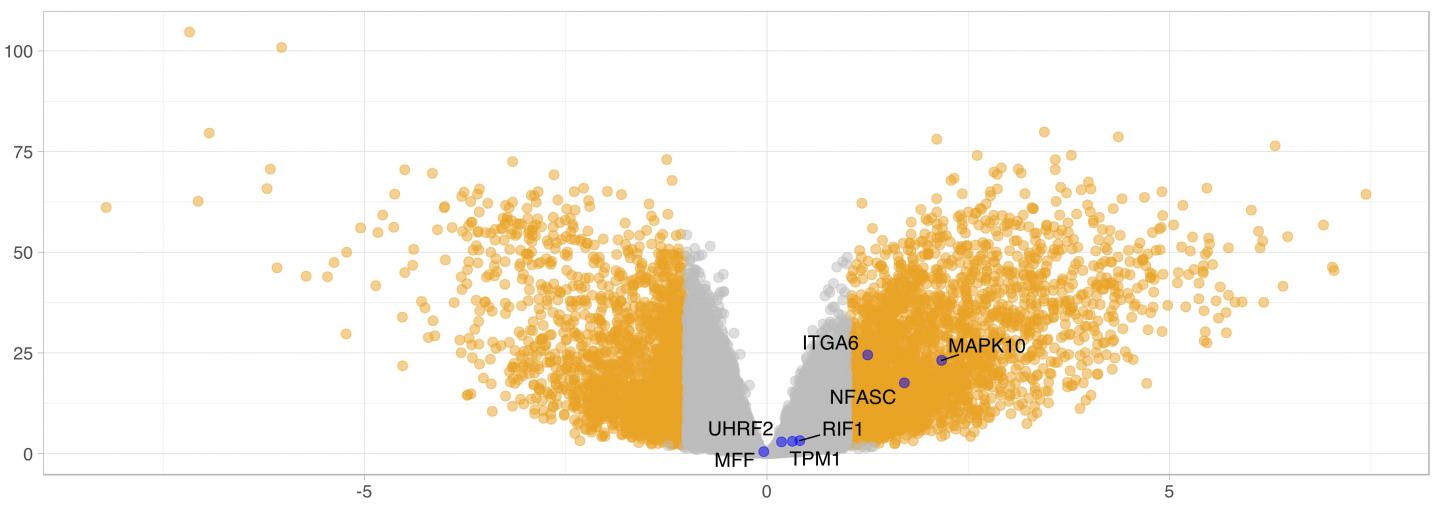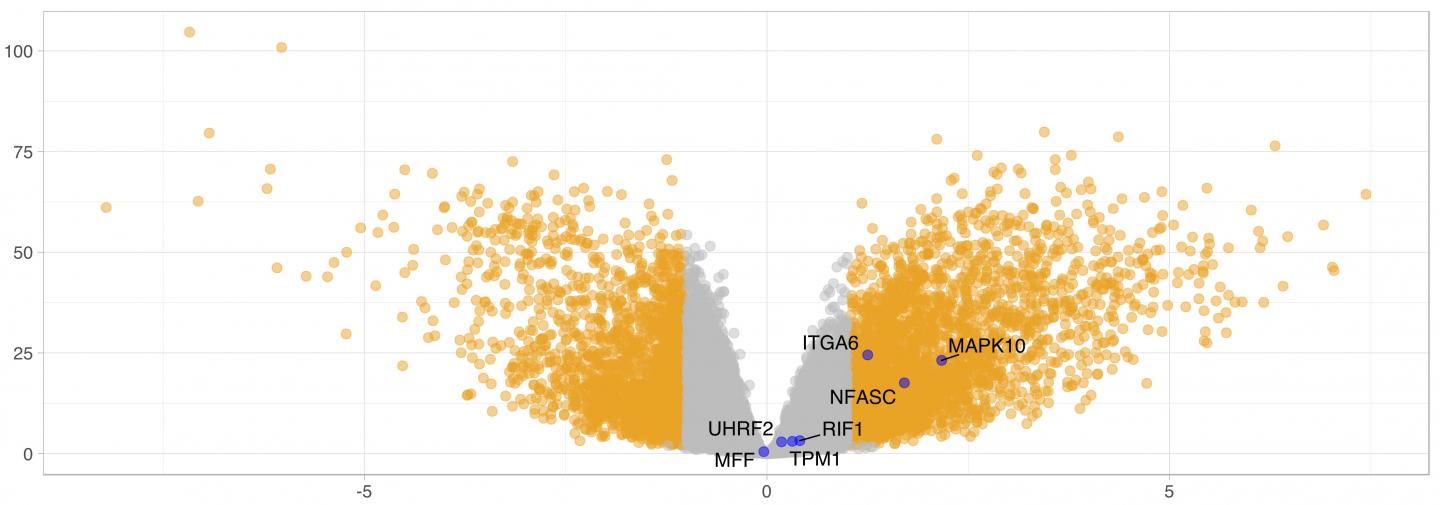
Credit: Nuno Agostinho, iMM.
A new computational approach that allows the identification of molecular alterations associated with prognosis and resistance to therapy of different types of cancer was developed by the research grould led by Nuno Barbosa Morais, Group Leader at Instituto de Medicina Molecular João Lobo Antunes (iMM; Portugal), and now published open access in Nucleic Acids Research*.
Cancer cells are characterised by perturbations in the regulation of genes and, in particular, by alterations in alternative splicing, a process by which the same gene can originate different proteins. Some of those alterations are associated with different malignant features of cancer and its resistance to treatment but vary from tumour to tumour. "Each patient hosts a different cancer, so that scientists and clinicians need molecular information about many individuals to, supported by data, understand disease mechanisms, assess prognosis and make predictions on the best treatment for each patient based on their tumour's molecular profile", explains Nuno Barbosa Morais.
"We have created a software that, by analysing large databases with clinical and splicing information for thousands of tumours, detects patterns of similarities between different cases and allows, for instance, to identify the relation of each molecular alteration with patient survival, for more than thirty types of cancer. In practice, the program allows to quickly convert a lot of genome-wide data into biological information with clinical potential", explains Nuno Saraiva Agostinho, first author of the study and student of the PhD programme CAML (Centro Académico de Medicina de Lisboa, da Faculdade de Medicina da Universidade Lisboa).
"Thanks to this approach, we have already identified a possible mechanism of resistance to chemotherapy in colorectal cancer that we are now investigating, in an international collaboration that we are leading. We have also identified a new prognostic marker in breast cancer that we will now study, teaming up with other iMM colleagues", highlights Nuno Barbosa Morais, who leads the lab and has supervised the study.
###
This work was funded by the European Molecular Biology Organisation (EMBO) and the Portuguese Fundação para a Ciência e a Tecnologia (FCT).
*Saraiva-Agostinho, N, Barbosa-Morais, N.L. (2018) psichomics: graphical application for alternative splicing quantification and analysis. Nucleic Acids Research. gky888, https://doi.org/10.1093/nar/gky888
Media Contact
Inês Domingues
[email protected]
351-915-456-900
https://imm.medicina.ulisboa.pt/en/
Related Journal Article
http://dx.doi.org/10.1093/nar/gky888





